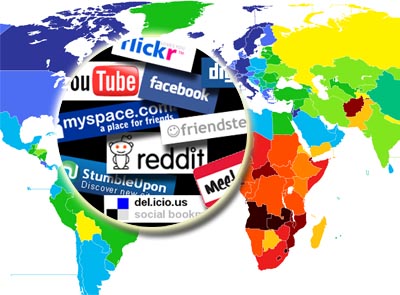Even as digital media users spend more time online than they sleep, only every second user thinks it has improved their quality of life.
This is according to more than 5 000 digital media users from Brazil, China, Germany, South Africa and the US.
Paradoxically, digital users are not inclined to pay for premium (34%), or exclusive or educational content (21%). But they almost universally expect media and entertainment companies to protect their personal data (72%).
The World Economic Forum’s Shaping the Future Implications of Digital Media for Society survey uncovered emerging behaviour patterns among users linked to an individual’s impression of the impact of digital media on their own life, social interaction, civic participation, work, personal empowerment and learning and its subsequent impact on the media, entertainment and information industries. This survey was complemented by the Forum’s Impact of Digital Content Opportunities and Risks of Creating and Sharing Information Online white paper which analysed the current and future impact of social media platforms on society. As platforms continue to grow, key issues such as ethics and privacy outlined in the paper will have an ever expanding impact on our society.
Overall, perception of digital media’s impacts on lives is positive:
* 50% of participants agreed that digital media use improves their quality of life;
* One out of six users believes it has a positive effect on maintaining relationships with friends;
* Two-thirds believe it helps them do their work, for example to build relationships with professional contacts, collaborate with colleagues, learn and develop professionally; and
* Half of respondents reported positive effects on their community involvement and civic participation.
Media, entertainment and information industries have undergone significant change in transforming consumer behaviour and preferences. The survey found:
* Users spend more hours online than they sleep, use digital media on multiple devices for work, connect with others, and go online for entertainment and to obtain information;
* Of survey respondents, 41% consider family or friends to have the most influence on their choice of digital media, while only 5% name advertising;
* Willingness to pay for digital media content is low: there is only a slight willingness to pay for premium entertainment (34%), and exclusive or education content (21%);
* One-third of those surveyed use advertisement blockers and privacy controls to block trackers and cookies; and
* Worldwide, 72% of respondents consider that it is important for media and entertainment companies to actively support corporate transparency on personal data management, usage and control.
Sarita Nayyar, MD of the World Economic Forum US, comments: “We are still striving to understand the implications of digital technology in our day-to-day life and the impact it will have on business, society and government. As we have a better grasp, we can start working towards shared norms and values, which benefits all digital media users equally.”
“The increased use of digital media is changing people’s everyday lives and the way they connect and collaborate, especially at work,” says Ravin Jesuthasan, MD and global practice leader at US-based Willis Towers Watson, who collaborated with the World Economic Forum on the project. “The digitisation of content and data as well as new digital communication technologies have opened up novel opportunities for where, when, how and by whom work gets done. This is also changing the nature of the employment relationship,” he says.
Although the global results suggest an overall positive impact of digital media use, significant differences among countries exist. The survey showed that, despite believing that digital media has improved their lives, a higher percentage of respondents in Brazil and China also believes they should reduce usage (33% to 44%).
Meanwhile, only one-fifth to one-quarter of users in Germany and the US think they should do so. These country differences are enlightening, even after accounting for cultural differences in survey response patterns. Clearly, it is important to understand the opportunities and risks in increased digital media usage so that industry, the public sector and users can learn how to best exploit the benefits while mitigating the negative effects.

